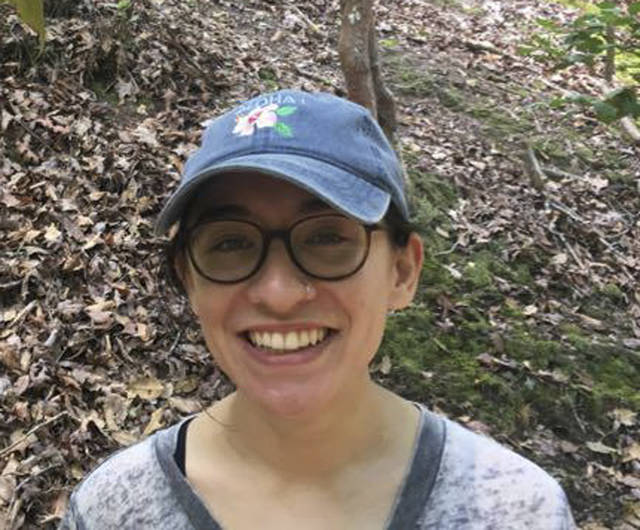JERUSALEM — In a groundbreaking case, Israel has detained an American graduate student at its international airport for the past week, accusing her of supporting a Palestinian-led boycott campaign against the Jewish state.
The case highlights Israel’s concerns about the boycott movement and the great efforts it has made to stop it. The grassroots campaign has made significant inroads in recent years, particularly among university students and millennials.
Lara Alqasem, a 22-year-old U.S. citizen with Palestinian grandparents, landed at Ben-Gurion Airport last Tuesday with a valid student visa. But she was barred from entering the country and ordered deported, based on suspicions she is a boycott supporter.
An Israeli court has ordered that she remain in custody while she appeals. The weeklong detention is the longest anyone has been held in a boycott-related case, and it was not immediately clear on Tuesday when a final decision would be made.
In the meantime, she has been spending her days in a closed area with little access to a telephone, no internet and a bed that was infested with bedbugs, according to people who have spoken to her.
Alqasem, from the Fort Lauderdale suburb of Southwest Ranches, Florida, is a former president of the University of Florida chapter of Students for Justice in Palestine. The group is a branch of the BDS movement, whose name comes from its calls for boycotts, divestment and sanctions against Israel.
BDS supporters say that in urging businesses, artists and universities to sever ties with Israel, they are using nonviolent means to resist unjust policies toward Palestinians. Israel says the movement masks its motives to delegitimize or destroy the Jewish state.
“Lara served as president of a chapter of one of the most extreme and hate-filled anti-Israel BDS groups in the U.S.,” said Strategic Affairs Minister Gilad Erdan, who spearheads the Israeli government’s efforts against the boycott. “Israel will not allow entry to those who work to harm the country, whatever their excuse.”
The ministry said that during Alqasem’s involvement with Students for Justice in Palestine, the club advocated a boycott against Sabra hummus, an Israeli-owned brand of chickpea dip.
On Tuesday, Erdan floated a possible compromise, saying in a radio interview that he would rethink his decision to expel her if she apologizes and renounces her support for BDS.
“If Lara Alqasem will tomorrow in her own voice, not through all kinds of lawyers or statements that can be misconstrued, say that support for BDS is not legitimate and she regrets what she did, we will certainly reconsider our position,” he said.
Israel enacted a law last year banning any foreigner who “knowingly issues a public call for boycotting Israel” from entering the country. It also has identified 20 activist groups from around the world whose members can be denied entry upon arrival. It so far has blocked 15 people from entering, according to Erdan’s ministry.
The ministry uses a variety of sources to identify BDS activists, including tips from informants and social media posts. The ministry says its suspicions were deepened after learning that Alqasem recently deleted all of her social media accounts.
In her appeal, Alqasem has argued that she never actively participated in boycott campaigns, and promised the court that she would not promote them in the future.
“We’re talking about someone who simply wants to study in Israel, who is not boycotting anything,” said her lawyer, Yotam Ben-Hillel. “She’s not even part of the student organization anymore.”
Alqasem is registered to study human rights at Israel’s Hebrew University in Jerusalem. The university has thrown its support behind her, announcing on Monday it would join Alqasem’s appeal.
She also received a boost from her former Hebrew professor at the University of Florida, who described her as an exceptional and curious student. In a letter to the Israeli newspaper Haaretz, Dror Abend-David said she had an “open and positive attitude toward Judaism, Jews, and the State of Israel.”
In an interview from Florida, her mother, Karen Alqasem, affirmed her daughter’s tolerance and intellectual drive.
“Studying and getting to know the country was Lara’s dream for as long as I can remember,” she told The Associated Press. “She may have been critical of some of Israel’s policies in the past but she respects Israeli society and culture. To her, this isn’t a contradiction.”
Her lawyer and a group of opposition lawmakers have visited Alqasem and say she is in safe, but subpar, conditions.
In a conversation with her daughter last Friday, Alqasem said Lara complained of a bedbug infestation in her cell. With her phone confiscated and communication mostly restricted to calls with her lawyer, Lara has felt “completely cut off from the world,” she said.
The United States Embassy has visited Alqasem in detention to ensure that she has food and water. While the embassy is following Alqasem’s case, it cannot legally advocate on her behalf, spokeswoman Valerie O’Brien said.
Mossi Raz, an opposition lawmaker who visited her, said she told him that without books or any forms of entertainment, she spends her time talking with other women being held in the same cell for various visa-related issues.
In addition to the anti-BDS campaign, Israel has detained or interrogated a number of vocal Jewish critics, both Israeli and foreign, about their political views while entering the country in recent months. These tactics, along with legislation curbing the influence of anti-occupation advocacy groups, have raised concerns that the nationalist government is trying to stifle dissent.
The Strategic Affairs Ministry says it deals only with BDS cases. The Shin Bet, which oversees security procedures at border crossings, says it stops people only over security matters, not their political views.


